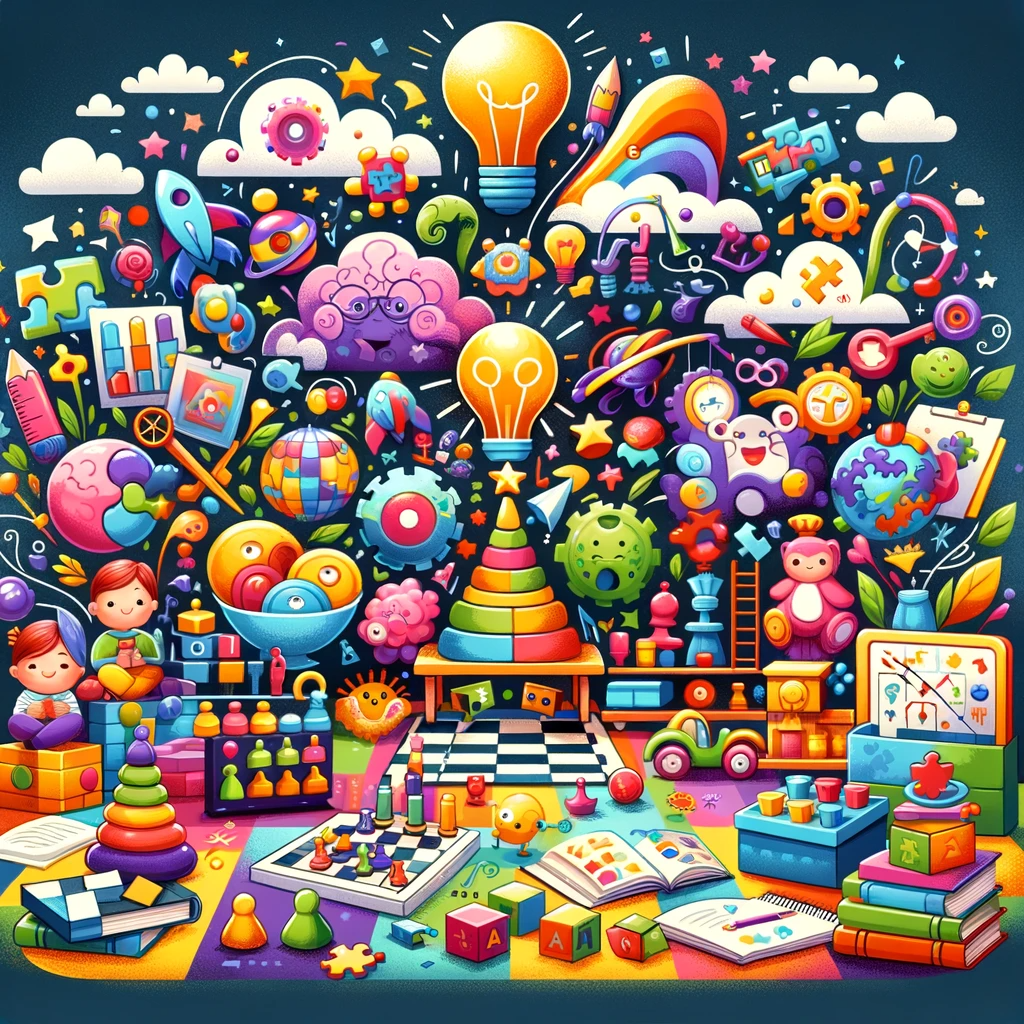Intellectual games are a fantastic way for kids to develop various skills while having fun. Here’s a comprehensive guide to some of the best intellectual games for kids, categorized by the skills they help to develop:
1. Problem-Solving and Critical Thinking
Chess: An excellent game for teaching strategic thinking and foresight. It helps kids to think ahead and consider the consequences of their actions. The complexity of the game encourages deep concentration and patience, essential for mastering strategic play.
Sudoku: Great for developing logical thinking and pattern recognition. This number puzzle challenges kids to fill a grid so that each column, row, and mini-grid contains all the digits without repetition, sharpening their analytical skills.
Rubik’s Cube: Enhances problem-solving skills and improves memory and concentration. Solving this 3D puzzle involves understanding algorithms and spatial awareness, making it a superb exercise for the brain.
2. Creativity and Imagination
Minecraft: A virtual building game that encourages creativity and can teach basic engineering and geometry concepts. Kids can design and build their own worlds, learning to manage resources and solve construction challenges.
LEGO Games: Physical or digital, these games enhance creativity, planning, and innovative thinking. Building structures with LEGO pieces helps kids understand spatial relationships and the basics of engineering.
Story Cubes: This game involves dice with images that prompt storytelling, enhancing imagination and narrative skills. Kids roll the dice and use the images to create unique stories, which fosters creative thinking and language skills.
3. Math and Number Skills
Math Board Games (e.g., Sum Swamp): These make learning basic arithmetic fun and engaging. Kids navigate through swamps using addition and subtraction, making math interactive and enjoyable.
Numbers League: A superhero-themed card game that involves basic math to defeat villains. Kids use arithmetic to create superhero teams, reinforcing their number skills in a fun context.
Prime Climb: This colorful board game teaches multiplication and division in an engaging way. Players move their pieces by rolling dice and using arithmetic operations, promoting fluency in math.
4. Language and Vocabulary
Scrabble Junior: A simplified version of Scrabble that helps kids in word formation and vocabulary expansion. The game provides a fun way to practice spelling and discover new words.
Boggle Junior: This game aids in letter recognition and word formation. Kids shake the letter cubes and race to find words, improving their vocabulary and spelling skills.
Pictionary: Great for vocabulary development and encourages artistic skills. Players draw pictures to represent words, helping others guess the word, which enhances both visual and verbal communication.
5. Memory and Concentration
Memory Match Games: Classic card matching games that enhance memory and concentration. Kids flip cards to find pairs, which strengthens their recall abilities.
Simon Says: A game that improves auditory memory and concentration. Kids follow sequences of lights and sounds, enhancing their ability to remember and repeat patterns.
Qwirkle: Involves matching shapes and colors, enhancing visual memory and strategic thinking. Players earn points by creating lines of matching tiles, promoting logical thinking and pattern recognition.
6. Science and Exploration
Magic School Bus Science Games: Based on the popular series, these games introduce scientific concepts in a fun way. Kids embark on virtual field trips and experiments, learning about various scientific topics.
National Geographic Kids Games: These games involve exploration and introduce kids to geography and nature. Through interactive activities, kids learn about different cultures, ecosystems, and wildlife.
Robot Turtles: A board game that teaches basic programming concepts and logical thinking. Kids write “code” to navigate turtles through a maze, learning the fundamentals of programming in a playful manner.
7. Social Skills and Teamwork
Cooperative Board Games (e.g., Outfoxed!): These games require teamwork and help in developing social skills. Players work together to solve mysteries or complete missions, promoting collaboration and communication.
Guess Who?: Enhances questioning and deductive reasoning. Players ask yes-or-no questions to guess the identity of the opponent’s character, practicing critical thinking and social interaction.
Charades for Kids: Improves communication skills and body language interpretation. Kids act out words or phrases without speaking, enhancing their ability to express themselves and interpret others’ actions.
8. History and Culture
Where in the World is Carmen Sandiego?: A classic game that teaches geography and world cultures. Kids follow clues to track down the elusive Carmen Sandiego, learning about different countries and their cultures along the way.
Timeline: A card game where kids place historical events in the correct order. By arranging events chronologically, kids develop a better understanding of history and the sequence of significant occurrences.
Professor Noggin’s Card Games: These come in various themes and introduce kids to different historical and cultural topics. Each game includes trivia questions and activities, making learning about history and culture interactive and enjoyable.
By incorporating these intellectual games into their playtime, kids can develop a wide range of skills that will benefit them academically and socially. These games provide a fun and engaging way to learn, fostering a love for discovery and intellectual growth.

